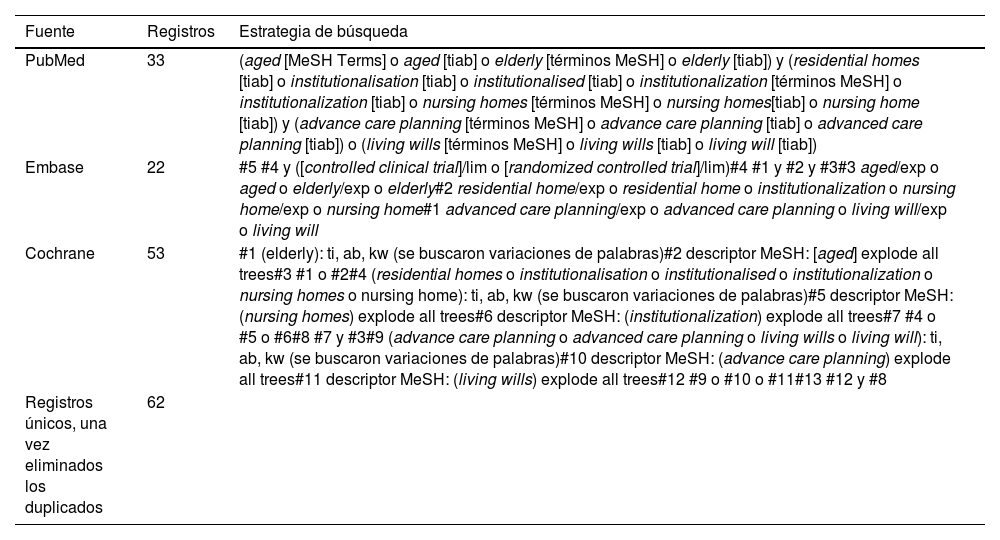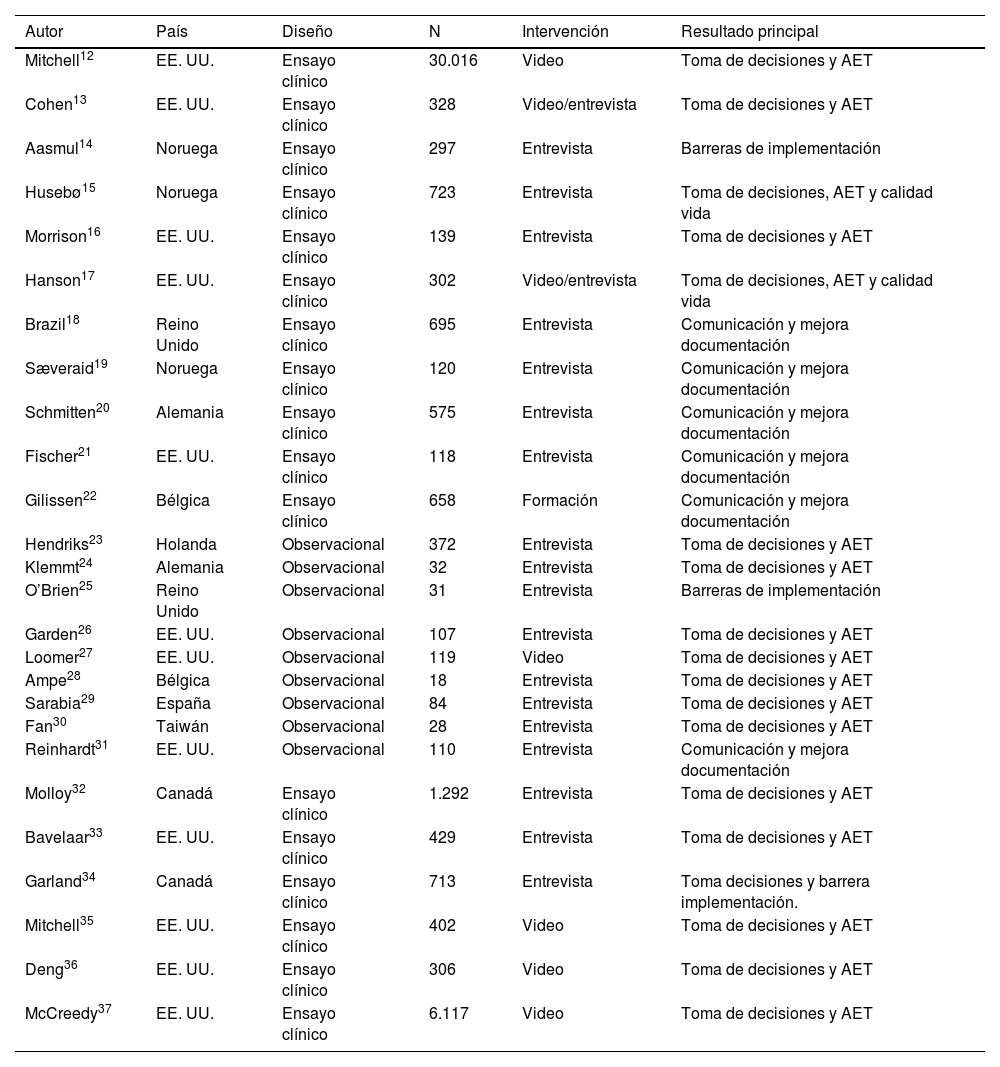La planificación anticipada de cuidados (PAC) es un proceso deliberativo que ayuda a los pacientes a definir objetivos y preferencias sobre la atención y tratamientos futuros en momentos que tengan limitada su capacidad de decisión. Este estudio tiene como objetivo analizar los modelos de PAC en residencias. Hemos examinado los trabajos publicados en Cochrane, PubMed y Embase. Se incluyeron un total de 26 artículos, con un sumatorio de personas mayores que asciende hasta 44.131. Se identificaron los tipos de intervención (entrevistas, videos, talleres, documentación, etc.) y sus resultados derivados de la aplicación. En conclusión, ninguno de los trabajos implementa un modelo de intervención estandarizado. Las intervenciones incluyen la toma de decisiones sobre traslados, órdenes de reanimación y la adecuación de esfuerzo terapéutico (antibioterapia [ATB], nutrición, sueroterapia, etc). Otros resultados incluyen las barreras de implementación de tiempo y formación.
Advance care planning is a deliberative process that aims to help patients define goals and preferences for future care and treatment at a times when they have limited decision-making capacity. This study aims to analyze models of advance care planning in elderly individuals living in nursing homes. We reviewed papers published in Cochrane, PubMed and Embase. A total of 26 studies were selected, including a total of 44,131 people over 65 years of age. We analyzed the types of intervention (interviews, videos, workshops, documentation, etc.) and their results derived from the application. We conclude that no study implements a standardized intervention model. These interventions include decision-making (transfers to hospital, resucitation orders) and the adequacy of therapeutic effort (antibiotherapy, nutrition, serotherapy, etc.). Other outcomes are implementation barriers (time and training).
Artículo
Comprando el artículo el PDF del mismo podrá ser descargado
Precio 19,34 €
Comprar ahora









